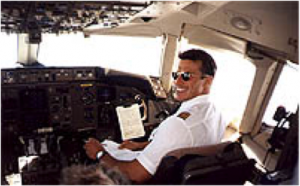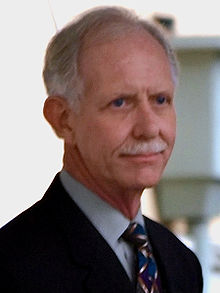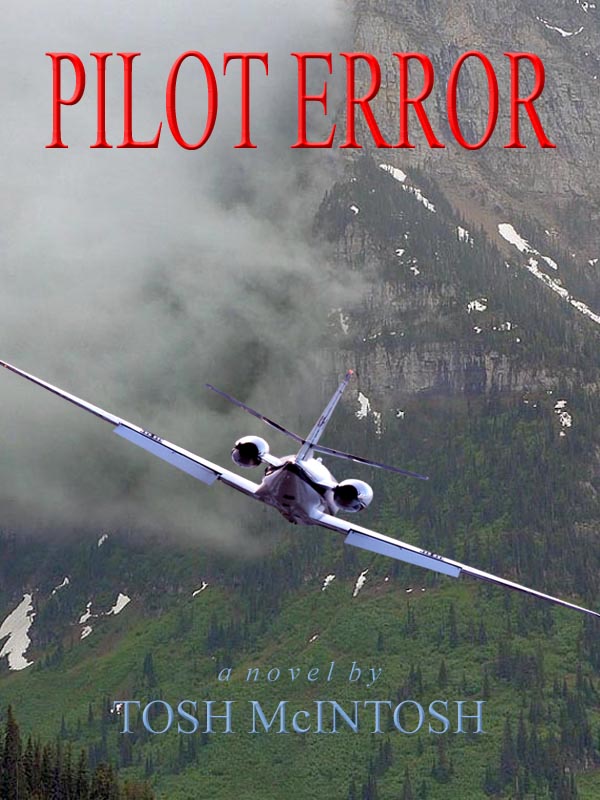Whenever I hear a non-flyer mention anything about getting a pilot’s license, I immediately offer a heart-felt caution: “Flying is like an incurable blood disease, and the only treatment is more flying.”
I should know. Since my first flight on January 16, 1964, it’s as if my view of the future has never extended past the end of my fingertips with my arm outstretched. To clarify, that’s where the instrument panel of an airplane is when sitting in the cockpit.
 There’s a big difference, of course, between flying for pleasure and as a career. A few years ago, one of the most well-known aviators in the U.S., if not the world, was asked if he would recommend a flying career to a high school senior. His answer was less than enthusiastic and reflected what is more than likely a common attitude among professional aviators: “It’s not what it used to be.” Based on my personal experience, I wholeheartedly agree with that assessment.
There’s a big difference, of course, between flying for pleasure and as a career. A few years ago, one of the most well-known aviators in the U.S., if not the world, was asked if he would recommend a flying career to a high school senior. His answer was less than enthusiastic and reflected what is more than likely a common attitude among professional aviators: “It’s not what it used to be.” Based on my personal experience, I wholeheartedly agree with that assessment.
 Imagine my surprise, therefore, to see a recent report by U.S. News based on data from the U.S. Labor Department indicating which occupations are likely to add jobs at an above-average rate over the next decade, while also providing an above-average median income. Expert sources within the aviation industry provided anecdotal evidence about employment prospects and job satisfaction. According to the report, median income for commercial pilots in 2009 was $65,840, and employment is expected to grow 19 percent through 2018, adding 7,300 new jobs.
Imagine my surprise, therefore, to see a recent report by U.S. News based on data from the U.S. Labor Department indicating which occupations are likely to add jobs at an above-average rate over the next decade, while also providing an above-average median income. Expert sources within the aviation industry provided anecdotal evidence about employment prospects and job satisfaction. According to the report, median income for commercial pilots in 2009 was $65,840, and employment is expected to grow 19 percent through 2018, adding 7,300 new jobs.
The online aviation news resource AVweb noted: “Many of those new jobs may go to pilots who have been furloughed due to the current economic downturn or because of mergers and cutbacks in the industry. But according to U.S. News, as the economy recovers [a shaky assumption, in my opinion] and a wave of pilots reaches retirement age, the hiring outlook should improve. While the story is upbeat, the multitude of comments [offer more] of a mixed bag.
“Many commenters note the high cost of training compared to the low pay of entry-level pilot jobs, the long hours and frequent nights away from home, and the uncertainty of any retirement income. Several say they’ve enjoyed their career but wouldn’t recommend it to others unless they have a deep-seated passion for aviation.” Amen, brother.
In a follow-up blog, AVweb examined the comments in more detail with this opening sentence: “There’s nothing better than flying for a living, unless it’s not flying for a living.” How’s that for ambivalence?
 The basis for this attitude lies in the perceived downslide in this “once-noble” profession, as expressed to a congressional panel by none other than Sully Sullenberger (“Miracle on the Hudson”), who said he didn’t know any airline pilot who would want his or her children to pursue a cockpit career. The low pay and punishing schedules of regional airlines, along with the downsizing impact of economic doldrums, has left airline and corporate pilots with thousands of hours and six-figure salaries wondering if they should be seeking another line of work. How can this be a good time to begin at the beginning?
The basis for this attitude lies in the perceived downslide in this “once-noble” profession, as expressed to a congressional panel by none other than Sully Sullenberger (“Miracle on the Hudson”), who said he didn’t know any airline pilot who would want his or her children to pursue a cockpit career. The low pay and punishing schedules of regional airlines, along with the downsizing impact of economic doldrums, has left airline and corporate pilots with thousands of hours and six-figure salaries wondering if they should be seeking another line of work. How can this be a good time to begin at the beginning?
The article and its commenters received their fair share of counter-responses comparing them to spoiled whiners, and not without justification. Flying isn’t the only profession that has seen major changes in working conditions over recent decades. Compensation, benefits, and retirement packages have been negatively affected in many occupations. And why wouldn’t they? Nothing guarantees the status quo, no matter how much the “older heads” wish it to be so. What you see is what you get, and the prospective professional aviator has no choice but to accept the new order of business.
 That said, unique challenges face anyone considering the pilot career path. Entry level jobs pay poverty wages and require huge investments of time and money to qualify. To sit in the captain’s seat requires a pilot to accept total responsibility for the safety of everyone on board for every flight. Mistakes can have drastic consequences whether you are just starting out or on your last flight prior to retirement, a goal that can seem no more than a mirage when faced with years of rootless existence spent in hotels away from friends and family.
That said, unique challenges face anyone considering the pilot career path. Entry level jobs pay poverty wages and require huge investments of time and money to qualify. To sit in the captain’s seat requires a pilot to accept total responsibility for the safety of everyone on board for every flight. Mistakes can have drastic consequences whether you are just starting out or on your last flight prior to retirement, a goal that can seem no more than a mirage when faced with years of rootless existence spent in hotels away from friends and family.
 In the final analysis, the only criteria that can justify becoming a professional aviator is that it’s what a person loves to do. Counting on aviation as the means to an end — like a big house and a fat back account — is probably a mistake. As much as we’d like to think that planning ahead and making smart choices can protect us, job security in this occupation is effectively non-existent.
In the final analysis, the only criteria that can justify becoming a professional aviator is that it’s what a person loves to do. Counting on aviation as the means to an end — like a big house and a fat back account — is probably a mistake. As much as we’d like to think that planning ahead and making smart choices can protect us, job security in this occupation is effectively non-existent.
At the very least, doing what you love ensures that your effort won’t be a total waste. Again, from personal experience I can attest to that, along with the observation that fond memories won’t pay the rent in retirement.
But maybe the Air Force would take me back. I know it doesn’t look like it, but I can still do those things, you know.


